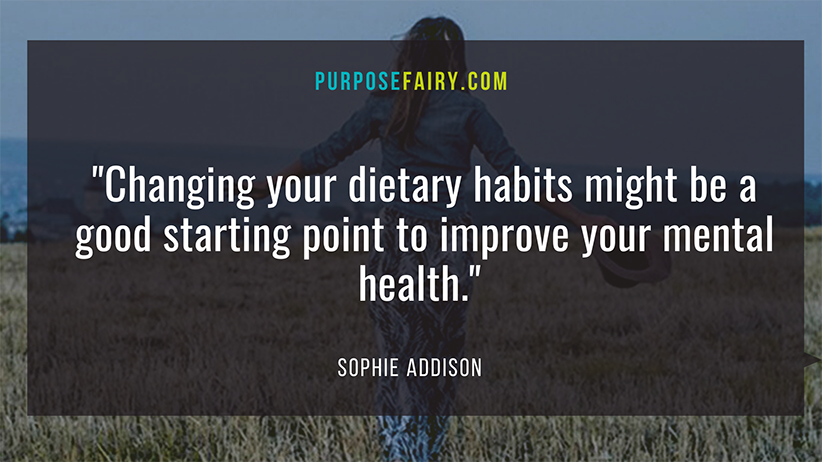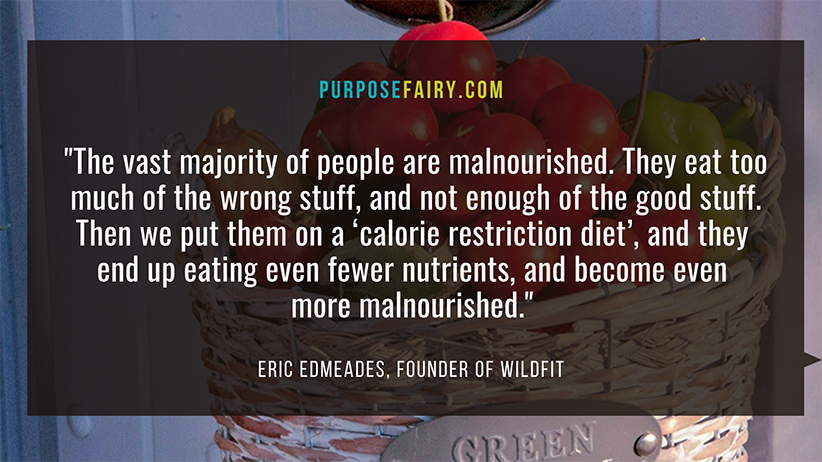
“You are what you eat” and “Abs are made in the kitchen” — common sayings, and so true! Yes, our eating habits shape our appearances and even our personalities. However, with various crash diets being smartly marketed to us over the media, it’s easy to go astray.
Crash diets can certainly help you quickly drop those extra pounds off your body but are they sustainable in the long run?
Certainly not. They are neither great for your body nor your mind. Plus, they sabotage your efforts to get strong or perform challenging exercises to the best of your abilities. We have strong eating habits that are influenced by many factors, especially ones picked during childhood. But with sufficient discipline and will, you can make remarkable shifts in your eating habits.
The benefits of healthy eating are well-founded. However, you need a thoughtful approach to make intelligent food choices that help you achieve your fitness goals. That said, there is no need for a significant overhaul of your existing diet, but with a slow yet definite start, it’s easy to find the right balance.
Healthy Eating Habits
A scientifically-backed and healthy diet plan should help you avoid overdoing an unhealthy eating practice or indulge in extreme habits that sabotage all your efforts at weight loss or maintenance of sound health.
All fitness enthusiasts, regardless of their body goals, need to adopt a sustainable lifestyle geared towards undoing some not-so-good habits and following a routine that encourages broad eating practices. Remember that any food habit needs to celebrate our unique bodies, the environment we live in, and include a multitude of healthy options with high nutritional properties. If you’re curious, here’s a look at six healthy eating habits that all fitness enthusiasts can draw inspiration from:
Top 6 Healthy Eating Habits All Fitness Lovers Should Follow
1. Choose Non-Tropical Vegetable Oils
The first of the 6 healthy eating habits to take on is choosing non-tropical vegetable oils.
We often overlook the importance of healthy cooking oils in our diet. The American Heart Association (AHA) recommends using healthy fats, which support a good heart. Saturated fats contained in solid fats like butter or margarine and tropical oils like palm oil increase the risks of heart diseases as they cause an imbalance of cholesterol levels.
So, stick to good fats like olive, sunflower, peanut, soybean, or canola oil (even blends of these are great) that suit your taste and the kind of food you aim to prepare. Remember to discard oils that have oxidized (bad-smelling), and avoid reheating or reusing them while cooking.

2. Have A Balanced Meal
The key to having a well-balanced diet is to keep a close watch on what goes into your mouth. This is one of the really important eating habits to take on.
To resist indulging in unhealthy foods, one needs to plan what to eat at specific hours of the day. Research suggests that having a nourishing breakfast, lunch, and dinner can support your fitness goals and help you maintain relatively stable body weight.
So, include “real” foods like lean proteins, such as meat, eggs, and fish, or plant-based proteins like legumes and beans; whole grains, vegetables, fruits, nuts, seeds, herbs, and spices in your daily diet. Ditch the processed and unhealthy options, such as cookies, carbonated drinks, sugary treats, fries, frozen or ready-made meals. Most importantly, control your portion size and don’t forget to paint your plate by combining colorful food items. This will help you reduce the risk of diseases and improve your overall health status.
3. Stay Hydrated
Exercise causes sweating, which results in water loss. As sixty percent of your body is made up of water, it is crucial for maintaining bodily functions. There are plenty of benefits of drinking water. Dehydration can cause excessive body heat-related illnesses and affect your physical performance.
We are all aware that drinking enough fluids is excellent for everyone, and with a higher intensity of physical activity, the body is put in greater need of it. So, stay sufficiently hydrated to improve your concentration, stabilize heart rate, maintain body temperature and circulate fluids like blood around the body.
Avoid overindulging in sports drinks and caffeinated beverages and stick to regular water or one with low-sugar content instead. Drink before you feel thirsty and if you exercise longer than an hour, take frequent breaks to recharge and rejuvenate yourself.
4. Snack Healthy
Making a good meal plan that includes major meals and a few mini-meals is fantastic for your fitness goals. These small and healthy indulgences control sugar spikes, cut down your hunger pangs that contribute to overeating. Avoid eating too soon before any physical activity or too late. If your exercise lasts longer than an hour, a mini snack such as a granola bar, yogurt, smoothie, peanut butter sandwich, or fruit like banana are good options to reach out to.
Healthy snacks are especially great if you typically hit the gym several hours after a heavy meal. So, maximize your workouts and maintain a stable metabolism by snacking healthy. This is what building healthy eating habits does for you.
5. Listen To Your Body

It’s good to know that each of our bodies is different, and so are their needs. How often and how much you exercise or engage in physical activities should determine what goes into your body. Also, how you feel throughout the day must help you decide if your body needs more food or less.
This is called intuitive eating, a philosophy that discards fad diets and inspires you to listen to your body’s requirements without labeling foods as typically “bad” or “good” for your health. So, when you eat intuitively, you trust the cues your body gives off. Let your experience and intuition guide you to choose satisfying foods with good nutritional properties.
You may also consider keeping a food journal to monitor your eating habits and make necessary adjustments depending on your physical requirements.
6. Stay Consistent
It’s common to indulge in a few cheat meals once in a while. Consider occasionally treating your body to sweets or deep-fried food (if you fancy), perhaps once in a month. This should help you stay motivated in your fitness journey. Depriving yourself of high-calorie foods or so-called “sinful” indulgences can leave you starved and raise your cravings. And that is disastrous. Since progress takes time, be kind to yourself if you falter but stay consistent in eating healthy.
Optimal nutrition is critical for your performance, recovery from injuries, and improving your overall quality of life.
So, eat a wide range of foods that ensures you meet your daily dietary requirements. You may succumb to temptations and give up easily but know that you can always get yourself back on track with small shifts each day. It’s important to understand that maintaining a healthy lifestyle is a lifelong journey and not a short-term goal, especially if you have committed yourself to good eating habits.
So start building healthy eating habits, eat smart and eat right to work out well and nonetheless, to enjoy great health.
Comments
Sowjanya Lakshmi
Sowjanya is an expert blogger and contributes in-depth articles about a range of different topics, such as beauty, health and wellness, and everything that may interest women. Her way of writing is easy to understand and informative at the same time. She is a regular contributor to StyleCraze.com and some other websites. You can reach me on LinkedIn.
read more